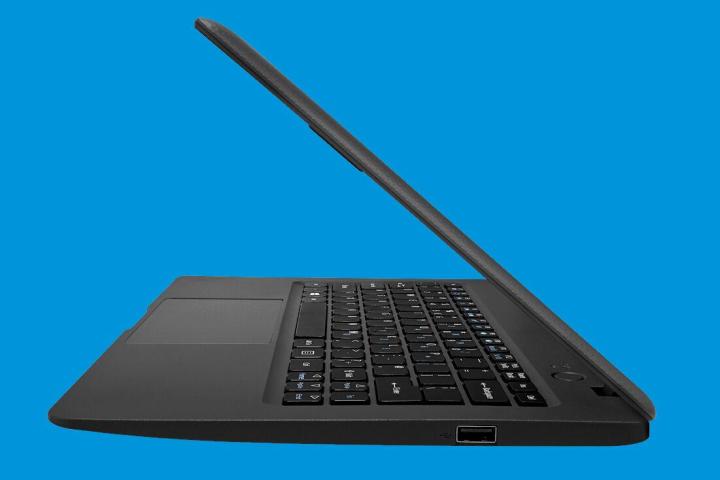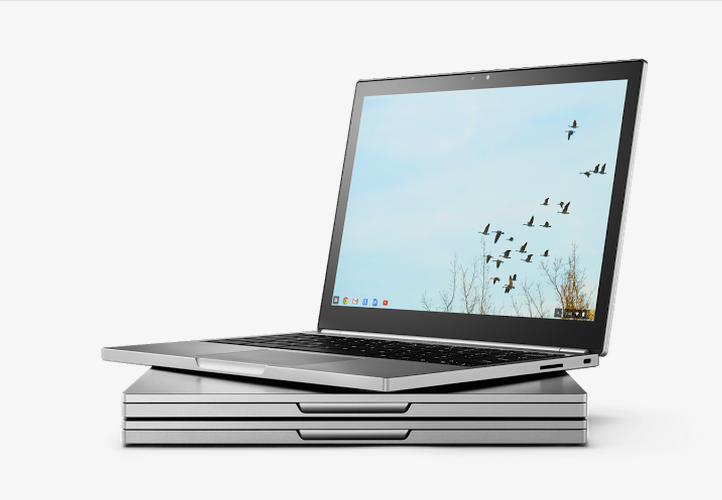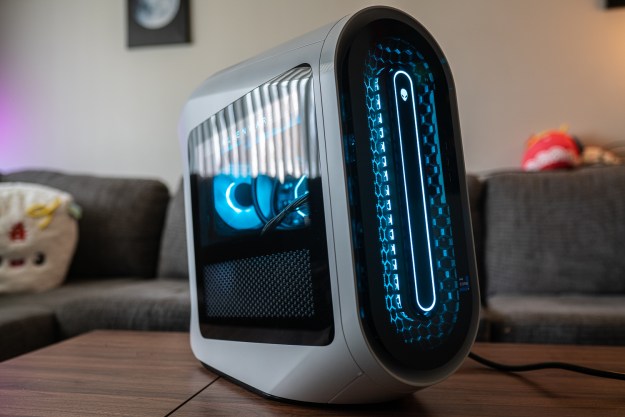
The new system has one significant drawback, or advantage, depending on your perspective. It comes fully stocked with a full terabyte of cloud storage. In terms of attracting marketing buzz, it’s a solid tactic, but physically this little laptop doesn’t claim to bring much more to the table.
“Free” storage included
At a minimum of $170, you can get a brand-new laptop with Windows 10 installed and a full terabyte of storage. This is, presumably, how Acer would pitch the Aspire One Cloudbook. But I’m skeptical of this new practice.
What happens to your files when the one-year trial expires
For one, that terabyte of storage you’re promised is only available through Microsoft’s OneDrive service, and you’re only getting that because of the Office 365 trial that accompanies the bundle. Office 365 has been packaged with Windows 8 PCs for a long time now. That’s nothing new, though Acer’s deal is just about to get a whole lot rarer.
But what happens when your one-year trial expires? Well, according to Microsoft, not only will the ability to save and edit files in Office be retracted, but “you’ll also lose access to the services that are included with your subscription, such as extra OneDrive storage and Skype minutes.”

If you thought you were getting a Windows 10 laptop complete with 1TB of onboard storage, think again, and allow me to introduce you to Microsoft’s DRM-riddled, post-physical storage media nightmare.
Nothing lasts forever – especially cloud storage
The situation isn’t wholly different for Google’s Chromebooks, unfortunately, despite an estimated sales growth of 27% this year. As part of a promotion it ran last year, Google added incentive to bring customers over the fence, hoping you’d opt for a Chromebook Pixel over a clunky Windows PC.
For anywhere from $200 to $2,000, you could get 1 terabyte of free Google Drive cloud storage with the purchase of a new Chromebook — at least until your two-year trial runs out.

As Forbes eloquently pointed out, after further examination, this wasn’t such an exceptional deal. First of all, Microsoft has said before that most computer users don’t store more than 15 gigabytes of files on their hard drive. Seeing as that’s the case, even the most adamant power users wouldn’t occupy more than 100GB through either of these promotions.
Both Microsoft and Google know this. That’s what they’re setting you up for. They’re essentially coughing up unlimited cloud storage in the hopes that it goes unused. Then, when your trial is up, you might even be tempted to continue on a paid subscription to fill up the extra storage space you had left over. It’s clever business, but it’s a far cry from revolutionary tech.
Microsoft, Acer, and the death of the hard drive
In a news article, Engadget called Acer’s Aspire One Cloudbook “a minimalist PC concept,” but that’s like saying Macs don’t get viruses. Acer wants you to think it’s minimalist, but if you actually need constant access to your files wherever you go — you know, like the whole point of owning a laptop as opposed to a desktop — the Cloudbook fails to deliver.
Here’s where things get slippery. Forgoing physical storage space in favor of the cloud means that you’ll need constant Internet access to manage your files. With only 16GB available internally on the Acer’s most affordable Cloudbook, most of that is assuredly going to be filled with mandatory Windows update files and the like.
It’s unlikely there will even be enough room on the device for the Office suite it ships with,which on its own takes up 3GB of disk space, not to mention other essential computing tools. It’s clear that Microsoft is moving towards an online-only ecosystem.
This became apparent when, in 2013, the Xbox One was revealed to be riddled with online DRM checkups every 24 hours. Microsoft reversed these policies, but that hasn’t stopped it from gradually approaching an Internet-mandated push in its computing sector.
Deterred by simplicity
If there’s one significant difference between the Chromebook and Acer’s sub-$200 response, it’s the operating system. Windows 10 has scored major points with the hardcore PC crowd, even here at Digital Trends, but it’s important to remember that we represent a vocal minority of PC users, not the average consumer.
Chromebook has garnered a following if only because its operating system, Chrome OS, is almost entirely web-based. That is what makes it so relentlessly compatible with Google Drive; Chrome OS is the reason the Chromebook makes sense as a viable product and Cloudbook doesn’t.

With Chromebook, an operating system is being crafted in conjunction with the hardware. It makes sense to not have a lot of physical storage space when there’s an intentional lack of offline services. With Cloudbook, Windows 10 is being shoehorned into a product in which it doesn’t belong.
Power users with a Windows 10 device will expect that hardware-demanding photo and video editing services will run fluently on the platform. Casual users, meanwhile, will expect the Cloudbook to operate more or less like any other Windows 10 laptop, running the same software in the same way. In neither area will the Cloudbook meet user expectations.
A notebook for no one
And thus, the Cloudbook is a notebook for no one, and that’s a problem neither its underpowered mobile processors nor its time-sensitive bonus offers can save it from.
Digging deeper into the fine print of a recent press release sent out by Acer, you could easily discover that the affordable $170 Cloudbook variant doesn’t even come with the 1TB OneDrive subscription. Instead, a voucher is included for 100GB of cloud storage.
So not only are you shorted physical storage capacity, but if you plan on purchasing the only Aspire One Cloudbook model worth getting, you’re also missing out on 900GB of storage.
That’s not exactly what I’d call a steal.
Editors' Recommendations
- Why I converted my Windows laptop into a Chromebook, and why you should too
- I switched to a Chromebook for a week. Here’s what surprised me as a Windows user
- Windows 10 is at a standstill. Here’s what it needs to learn from Chromebooks
- Google is bringing desktop Windows apps to Chromebooks
- Windows on a Chromebook is a dead dream, but something better could replace it


